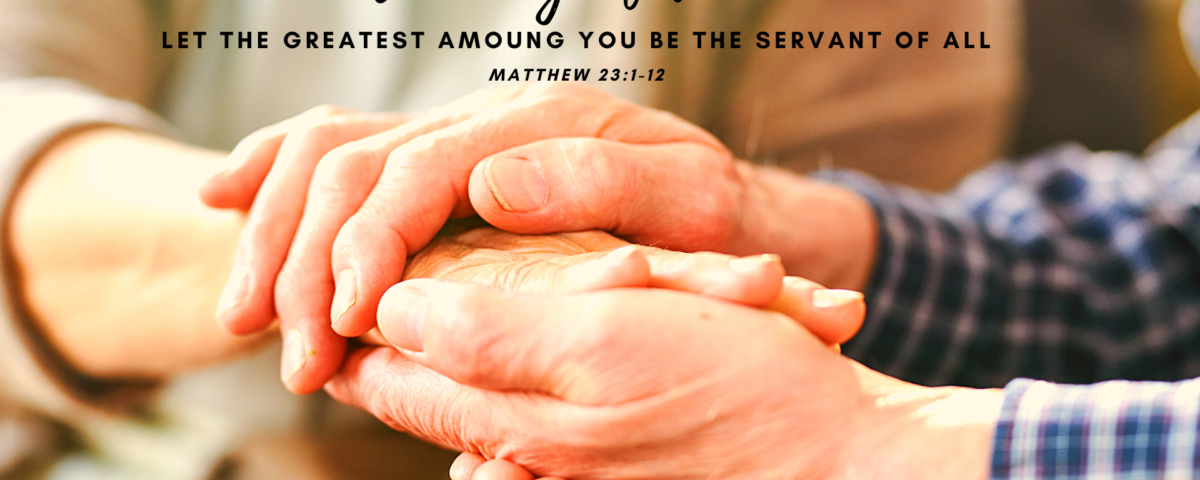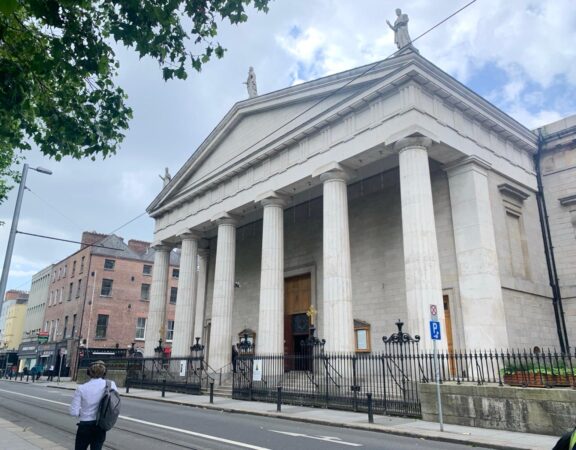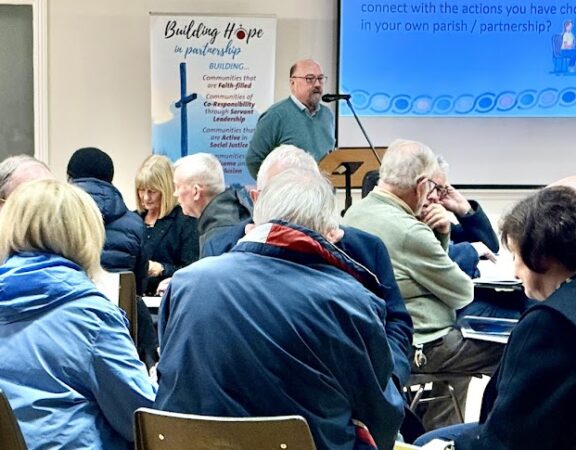Mass for the Feast of our Lady of Lourdes and World Day of the Sick.
Invitation from the Dublin Diocesan Lourdes Pilgrimage Office
Archbishop Dermot Farrell will be celebrate Mass tomorrow evening (Thursday,11th February) at 7:30pm for the Feast of our Lady of Lourdes and World Day of the Sick. The Mass is being celebrated at the request of the Lourdes Pilgrimage Committee. Praying for the sick during this time of pandemic takes on a whole new meaning and relevance. In the Mass we will remember all the sick people of the diocese, especially those suffering from the virus. We will pray also for those who are on “the frontline” in various medical and other professions at this time. We will also sadly think of those who have died.
The ceremony will be broadcast live from the Church of the Sacred Heart, Yellow Walls Parish in Malahide. We invite you to join in the Mass through the webcam. The webcam can be accessed on the parish website – www.yellowwallsparish.ie
World Day of the Sick
![]() On 13 May 1992, a number of years following an assassination attempt on his life that led to a time of suffering and the experience of being seriously ill in hospital, Saint Pope John Paul II launched a World Day of the Sick, which coincides each year in the Church across the world with the Feast Day of Our Lady of Lourdes on 11 February. Pope Benedict XVI and Pope Francis have continued this special World Day – an occasion during which the whole Church bears witness as always with special concern to the tender mercy and love of God towards all who suffer. It is a time to reflect on the needs of all who suffer, to pause and be prayerfully in solidarity with those who experience illness and with all who care for those who are facing sickness.
On 13 May 1992, a number of years following an assassination attempt on his life that led to a time of suffering and the experience of being seriously ill in hospital, Saint Pope John Paul II launched a World Day of the Sick, which coincides each year in the Church across the world with the Feast Day of Our Lady of Lourdes on 11 February. Pope Benedict XVI and Pope Francis have continued this special World Day – an occasion during which the whole Church bears witness as always with special concern to the tender mercy and love of God towards all who suffer. It is a time to reflect on the needs of all who suffer, to pause and be prayerfully in solidarity with those who experience illness and with all who care for those who are facing sickness.
Please see below the letter from Holy Father, Pope Francis for 29th World Day of the Sick, 2021 and also some themes/hints for our reflection, relating to the 2021 World Day of the Sick Message of the Holy Father, from Cardinal Turkson and The Dicastery for Promoting Integral Human Development.
Pope Francis always encourages us to experience the merciful face of Jesus, showing his mercy and tenderness to those who live through sickness and suffering, respecting their own inalienable dignity and mission in life, as we serve life and health.
“The celebration of the XXIX World Day of the Sick on 11 February 2021, the liturgical memorial of the Blessed Virgin Mary of Lourdes, is an opportunity to devote special attention to the sick and to those who provide them with assistance and care both in healthcare institutions and within families and communities. We think in particular of those who have suffered, and continue to suffer, the effects of the worldwide coronavirus pandemic. To all, and especially to the poor and the marginalized, I express my spiritual closeness and assure them of the Church’s loving concern”
Francis, 29th World Day of the Sick
Our Lady of Lourdes, pray for us. Mary, Mother of God, full of mercy, pray for us. Blessed Joseph her Spouse, pray for us.
Memorare
Remember, O most gracious Virgin Mary, that never was it known that anyone who fled to your protection, implored your help, or sought your intercession, was left unaided. Inspired with this confidence, I fly unto you, O Virgin of virgins, my Mother. To you do I come, before you I stand, sinful and sorrowful. O Mother of the Word Incarnate, despise not my petitions, but in your mercy hear and answer me. Amen.
Saint Patrick’s Breastplate
Christ with me, Christ before me, Christ behind me, Christ within me, Christ beneath me, Christ above me, Christ at my right, Christ at my left.
Christ in the heart of everyone who thinks of me, Christ in the mouth of everyone who speaks of me, Christ in every eye that sees me, Christ in every ear that hears me. I bind to myself today the strong name of the Trinity.
With kindest wishes and on behalf of Trish Conway, Coordinator of the Dublin Diocesan Committee for 29th World Day of the Sick.
MESSAGE OF HIS HOLINESS POPE FRANCIS
FOR THE XXIX WORLD DAY OF THE SICK 2021
“You have but one teacher and you are all brothers” (Mt 23:8). A trust-based relationship to guide care for the sick
Dear brothers and sisters,
The celebration of the XXIX World Day of the Sick on 11 February 2021, the liturgical memorial of the Blessed Virgin Mary of Lourdes, is an opportunity to devote special attention to the sick and to those who provide them with assistance and care both in healthcare institutions and within families and communities. We think in particular of those who have suffered, and continue to suffer, the effects of the worldwide coronavirus pandemic. To all, and especially to the poor and the marginalized, I express my spiritual closeness and assure them of the Church’s loving concern.
1. The theme of this Day is drawn from the Gospel passage in which Jesus criticizes the hypocrisy of those who fail to practise what they preach (cf. Mt 23:1-12). When our faith is reduced to empty words, unconcerned with the lives and needs of others, the creed we profess proves inconsistent with the life we lead. The danger is real. That is why Jesus uses strong language about the peril of falling into self-idolatry. He tells us: “You have but one teacher and you are all brothers” (v. 8).
Jesus’ criticism of those who “preach but do not practise” (v. 3) is helpful always and everywhere, since none of us is immune to the grave evil of hypocrisy, which prevents us from flourishing as children of the one Father, called to live universal fraternity.
Before the needs of our brothers and sisters, Jesus asks us to respond in a way completely contrary to such hypocrisy. He asks us to stop and listen, to establish a direct and personal relationship with others, to feel empathy and compassion, and to let their suffering become our own as we seek to serve them (cf. Lk 10:30-35).
2. The experience of sickness makes us realize our own vulnerability and our innate need of others. It makes us feel all the more clearly that we are creatures dependent on God. When we are ill, fear and even bewilderment can grip our minds and hearts; we find ourselves powerless, since our health does not depend on our abilities or life’s incessant worries (cf. Mt 6:27).
Sickness raises the question of life’s meaning, which we bring before God in faith. In seeking a new and deeper direction in our lives, we may not find an immediate answer. Nor are our relatives and friends always able to help us in this demanding quest.
The biblical figure of Job is emblematic in this regard. Job’s wife and friends do not accompany him in his misfortune; instead, they blame him and only aggravate his solitude and distress. Job feels forlorn and misunderstood. Yet for all his extreme frailty, he rejects hypocrisy and chooses the path of honesty towards God and others. He cries out to God so insistently that God finally answers him and allows him to glimpse a new horizon. He confirms that Job’s suffering is not a punishment or a state of separation from God, much less as sign of God’s indifference. Job’s heart, wounded and healed, then makes this vibrant and touching confession to the Lord: “I had heard of you by word of mouth, but now my eye has seen you” (42:5).
3. Sickness always has more than one face: it has the face of all the sick, but also those who feel ignored, excluded and prey to social injustices that deny their fundamental rights (cf. Fratelli Tutti, 22). The current pandemic has exacerbated inequalities in our healthcare systems and exposed inefficiencies in the care of the sick. Elderly, weak and vulnerable people are not always granted access to care, or in an equitable manner. This is the result of political decisions, resource management and greater or lesser commitment on the part of those holding positions of responsibility. Investing resources in the care and assistance of the sick is a priority linked to the fundamental principle that health is a primary common good. Yet the pandemic has also highlighted the dedication and generosity of healthcare personnel, volunteers, support staff, priests, men and women religious, all of whom have helped, treated, comforted and served so many of the sick and their families with professionalism, self-giving, responsibility and love of neighbour. A silent multitude of men and women, they chose not to look the other way but to share the suffering of patients, whom they saw as neighbours and members of our one human family.
Such closeness is a precious balm that provides support and consolation to the sick in their suffering. As Christians, we experience that closeness as a sign of the love of Jesus Christ, the Good Samaritan, who draws near with compassion to every man and woman wounded by sin. United to Christ by the working of the Holy Spirit, we are called to be merciful like the Father and to love in particular our frail, infirm and suffering brothers and sisters (cf. Jn 13:34-35). We experience this closeness not only as individuals but also as a community. Indeed, fraternal love in Christ generates a community of healing, a community that leaves no one behind, a community that is inclusive and welcoming, especially to those most in need.
Here I wish to mention the importance of fraternal solidarity, which is expressed concretely in service and can take a variety of forms, all directed at supporting our neighbours. “Serving means caring … for the vulnerable of our families, our society, our people” (Homily in Havana, 20 September 2015). In this outreach, all are “called to set aside their own wishes and desires, their pursuit of power, before the concrete gaze of those who are most vulnerable… Service always looks to their faces, touches their flesh, senses their closeness and even, in some cases, ‘suffers’ that closeness and tries to help them. Service is never ideological, for we do not serve ideas, we serve people” (ibid.).
4. If a therapy is to be effective, it must have a relational aspect, for this enables a holistic approach to the patient. Emphasizing this aspect can help doctors, nurses, professionals and volunteers to feel responsible for accompanying patients on a path of healing grounded in a trusting interpersonal relationship (cf. New Charter for Health Care Workers [2016], 4). This creates a covenant between those in need of care and those who provide that care, a covenant based on mutual trust and respect, openness and availability. This will help to overcome defensive attitudes, respect the dignity of the sick, safeguard the professionalism of healthcare workers and foster a good relationship with the families of patients.
Such a relationship with the sick can find an unfailing source of motivation and strength in the charity of Christ, as shown by the witness of those men and women who down the millennia have grown in holiness through service to the infirm. For the mystery of Christ’s death and resurrection is the source of the love capable of giving full meaning to the experience of patients and caregivers alike. The Gospel frequently makes this clear by showing that Jesus heals not by magic but as the result of an encounter, an interpersonal relationship, in which God’s gift finds a response in the faith of those who accept it. As Jesus often repeats: “Your faith has saved you”.
5. Dear brothers and sisters, the commandment of love that Jesus left to his disciples is also kept in our relationship with the sick. A society is all the more human to the degree that it cares effectively for its most frail and suffering members, in a spirit of fraternal love. Let us strive to achieve this goal, so that no one will feel alone, excluded or abandoned.
To Mary, Mother of Mercy and Health of the Infirm, I entrust the sick, healthcare workers and all those who generously assist our suffering brothers and sisters. From the Grotto of Lourdes and her many other shrines throughout the world, may she sustain our faith and hope, and help us care for one another with fraternal love. To each and all, I cordially impart my blessing.
Resources (From the Office For Evangelisation and Ecumenism)
Prayers for Healthcare Workers and Chaplains
Covid 19 Prayers and Reflections








